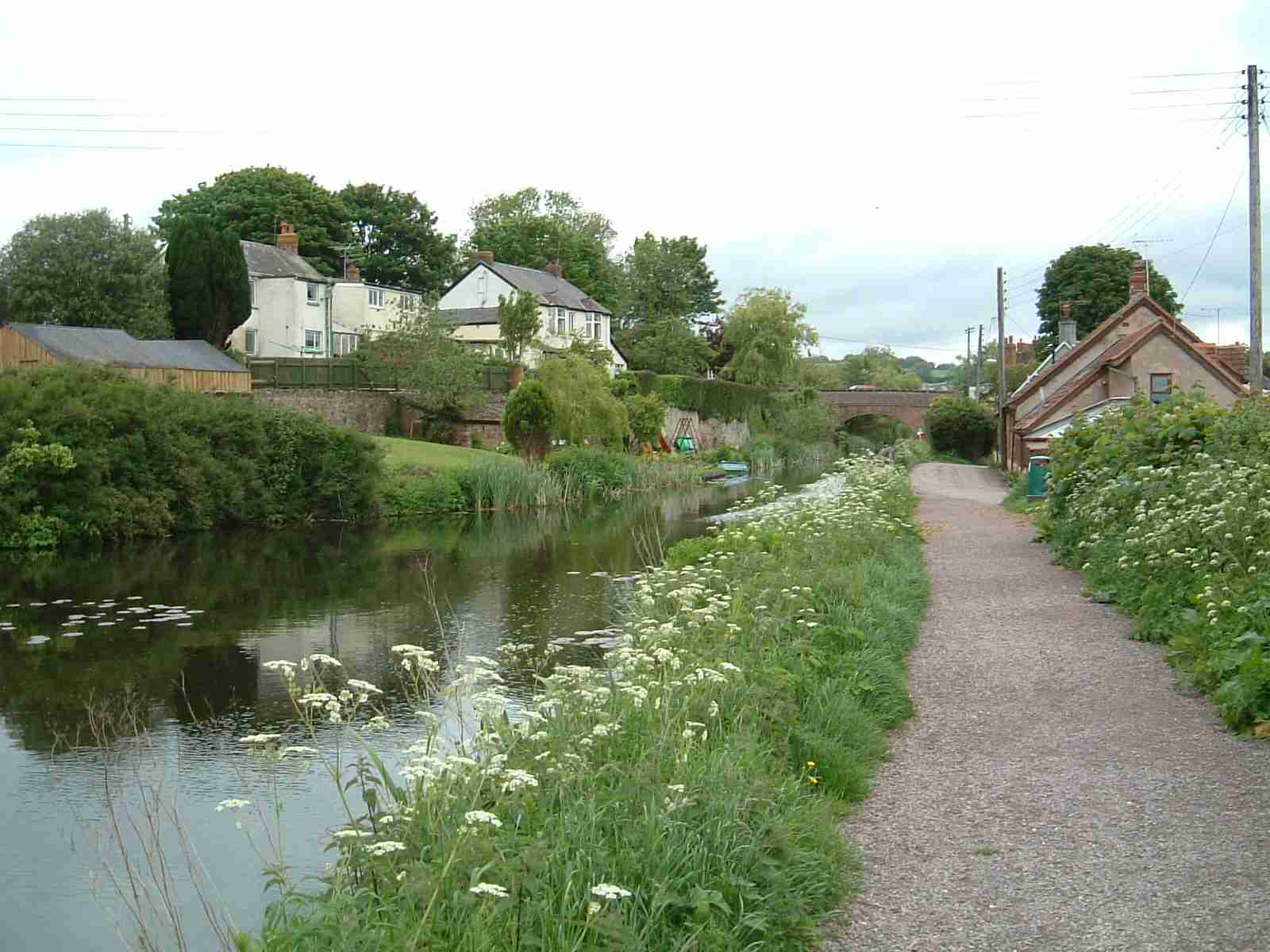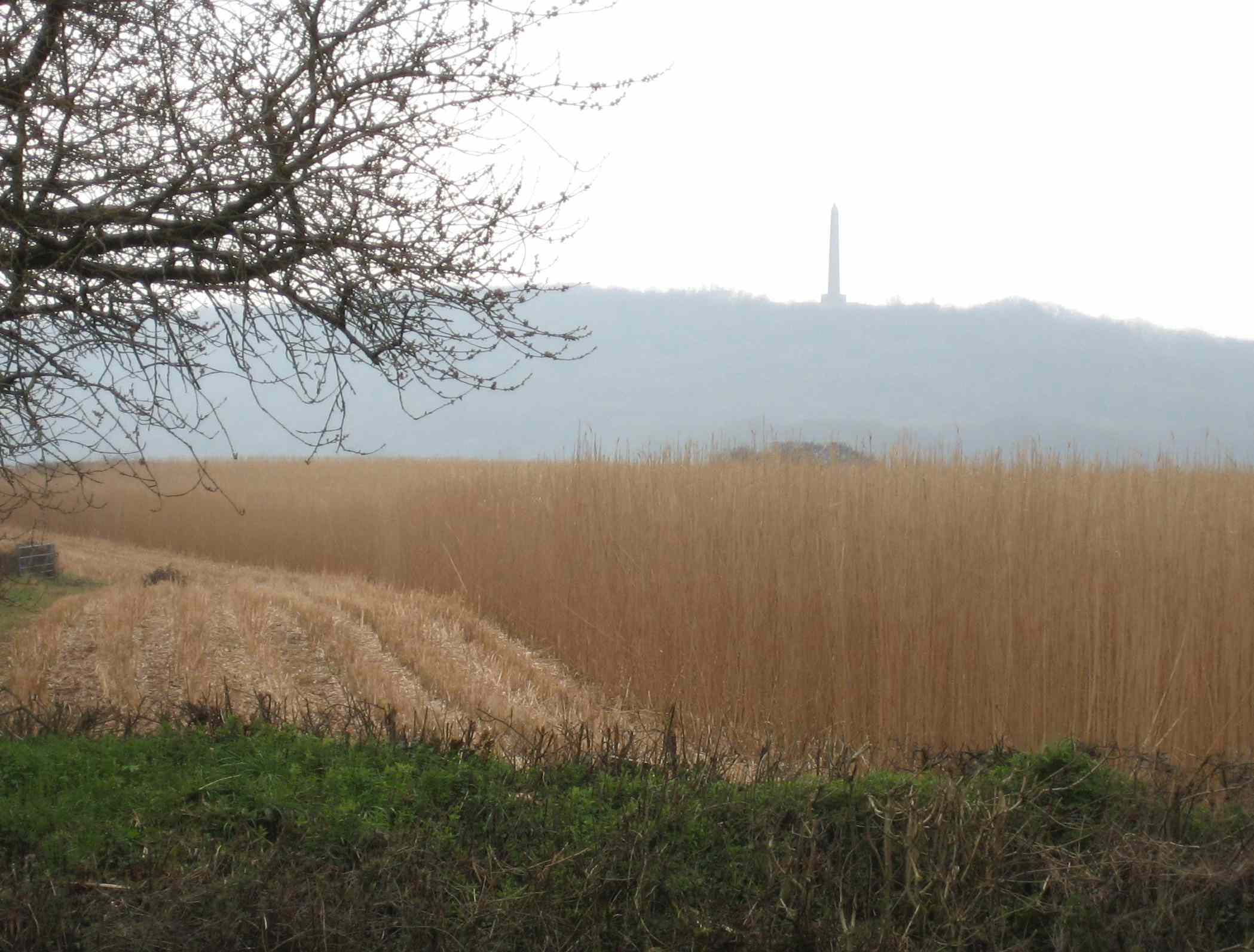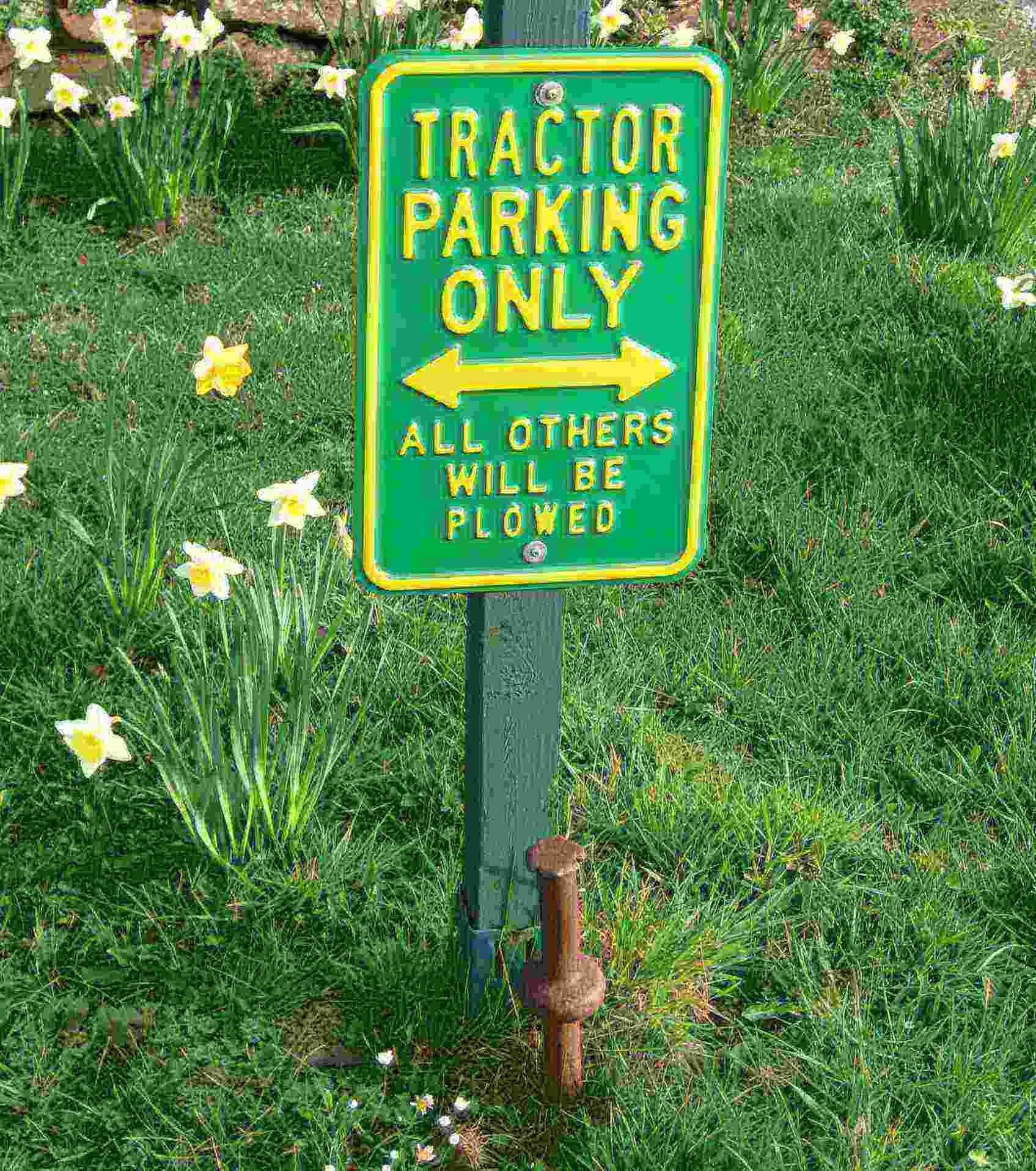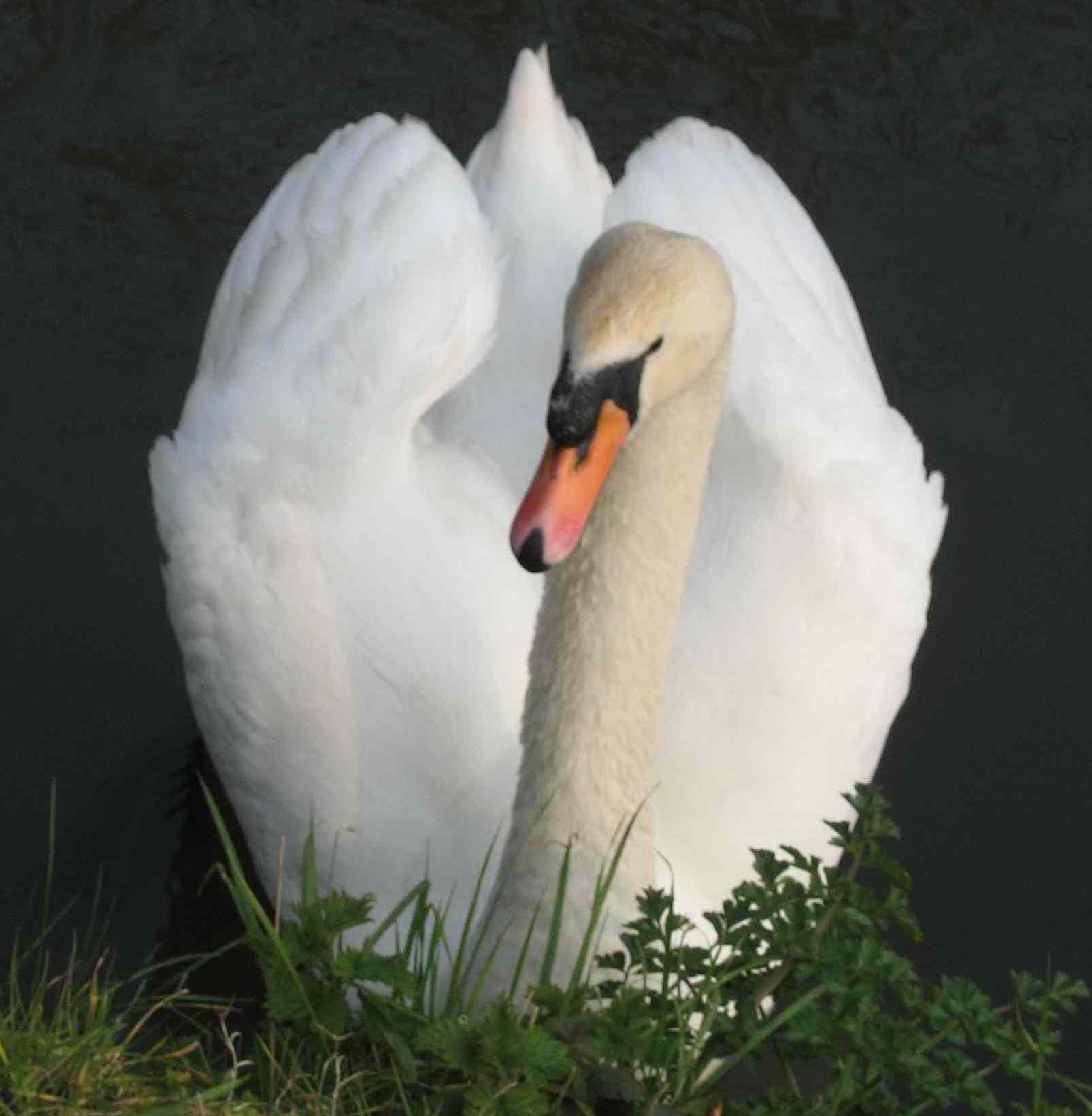| Just below: The
Grand Western Canal near Sampford Peverell, photo © Mark
Moxon 1995-2007 Below that: Wellington monument seen beyond the winter wheat |
|
 |
|
 |
|
 |
 |
| Days N1 - N14 English West Country | |
|
Northbound Home Start hiking here English West Country English Midlands North of England Southern Scotland Central Scotland Scottish Highlands Southbound Home |
Friday,
March 30, 2007
Time
of departure: 8.15 am
Time of arrival: 5.15 pm Place departed: Tiverton, Devon Place arrived: Taunton, Somerset Miles:
21.0
Cum miles: 176.3 Percent complete: 19.0  Heathercroft
B&B ** Heathercroft
B&B **Cost for bed and breakfast: £27 ($54) |
| Overview of both
hikes Excerpts Statistics What others say Acknowledgments Contact me Copyright Links |
|
|
The
lambs that I passed were getting stronger each day – as was
I. And the days were getting longer. (It wasn't a
coincidence that I started this hike at the equinox.) With the
switch to daylight saving time last weekend, this evening was light
enough to allow me to complete 21 miles in daylight. Halfway
through today, I entered Somerset.
The tempo of the last two days was dictated by my visit to my old friend, John Gilbert, and his charming wife, Alison, at their home in Stockland Bristol near Bridgwater. I'd been counting down my days to their place, where I now expected to arrive tomorrow. Today's hike was intended to end in Wellington, which is about halfway to Bridgwater. (Incidentally, the Duke of Wellington, named for the town and not vice versa, was the British general who defeated Napoleon.) Reaching Wellington today would enable me to arrive in Bridgwater tomorrow evening. But when I reached Wellington on its highway bypass, I saw no B&Bs and I also missed the unmarked route into town. So I pinned my hopes on finding a place just past town - and ended up trekking the extra five or six miles into Taunton before I succeeded. That left only eleven miles to do next day - assuming I could still walk after my 21 miles today. Early in the day, my route took me along the Grand Western Canal, not the most pristine, and at times it had a yeasty odor. It was as if the residents of Sampford Peverell had found an alternative use for the old canal - to make moonshine by the mile. The ducks had no complaints, swimming merrily along the less murky reaches, and I felt privileged when a couple of them didn't stir when I walked softly by them scarcely three ft away as they reposed on the footpath. Maybe they'd had too much moonshine? Today, the morning miles came easier than they usually do, perhaps because the hills were rarer and gentler than on previous days. Regardless, I am finding that the days have distinct stages: an hour of ease; then perhaps two hours of increasing difficulty; followed by two hours of painful trudge - and then an easing through the rest of the day, perhaps in anticipation of the upcoming accommodation. The route then becomes hard again only if adversity strikes in the form of a long, steep upgrade, or an absence of accommodation. I am walking long hours because I have two speeds, slow and stop. As a result, and though I keep the stops short, it takes me a while to cover a respectable distance. Younger and stronger hikers would probably take six hours to cover the distance that takes me eight hours. Today my average speed was undoubtedly higher than it had been because the route was flatter than previously. Sadly, there is another reason for making good progress: the absence of benches and picnic tables kept me on the move. Both are scarce, and wet grassy banks are a poor alternative. A notable exception was in Shobrook yesterday where, in that charming village, the elders had equipped their bus shelter with seven chairs, two of them with cushions. This put to shame the bus shelters in most other towns – mostly without a bench, some with lots of weeds and graffiti, and more than a few with a smell of urine. By their bus shelters shall ye know them (after Matthew 7:16). I had taken no Ibuprofen for the last two days, and my knees felt fine. They may be helped by my elastic knee supports, though it was frustrating that the right support kept working its way toward my calf. I hoped I hadn't overdone it today. I was too tired to eat tonight, but my decision was reinforced by the truth behind a story I once devised to tease my English friends. The story starts with my remark that you can take a dog into a restaurant on the continent of Europe. As long as the dog behaves itself, that’s usually allowed. “But”, I go on, “I’ve never seen that in England”. I then immediately add, “And do you know why?” As a perplexed look crosses the faces of my audience, I slip in the punch line: “No self-respecting dog will go into an English restaurant”. At this, my British friends will genteelly agree that this was true once, but protest – just too much - that it’s not true today. (It’s sad that we so largely measure our self-worth in front of foreigners by the reputations of our countries.) And, indeed, I agree with them. Britain has changed remarkably over the years, and in my opinion largely for the better, restaurants included. I left Devon today, and entered Somerset, home of some of the world's best cider – or cyder if it’s the fine brand known as Gaymer’s. I really must see if they still sell real "scrumpie" today – unfiltered cider heavy with solids, tasty yet sour with only natural sugars, alcoholic as few people know that cider can be – in fact, the scrumpie that I remember from my college days a mere 45 years ago. The Students’ Union bar obtained it in bulk, and sold the opaque brew at the devilishly good price of 8p (16¢) a pint, rather less than a pint of beer which cost 11p (22¢) and thus had to be rationed to fit within one’s budget. Not only was the scrumpie tastier than beer, but you could boast that it put hair on your chest, which was a way of declaring that it had twice the alcoholic content of beer but that you could handle it. This was true up to the first pint and seldom beyond, at which time both your hair and your brains fell out. Something told me that I was not really curious about the scrumpie, but mourning lost youth. |
|
| Day N10 © 2007 and 2008 Daryl May Day N12 | |